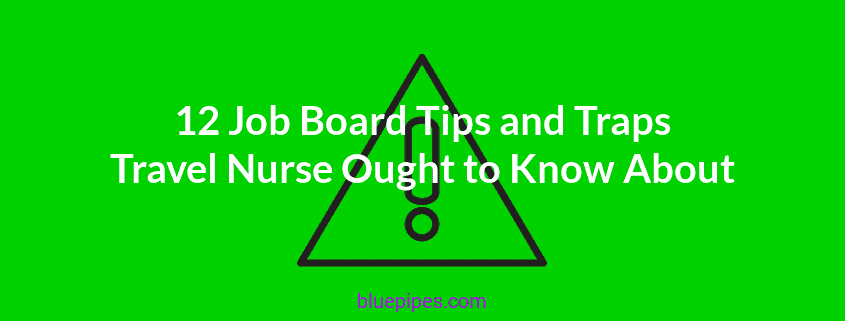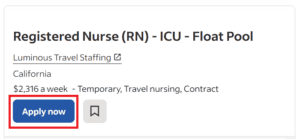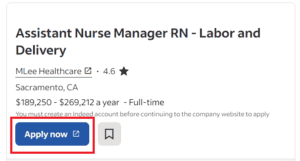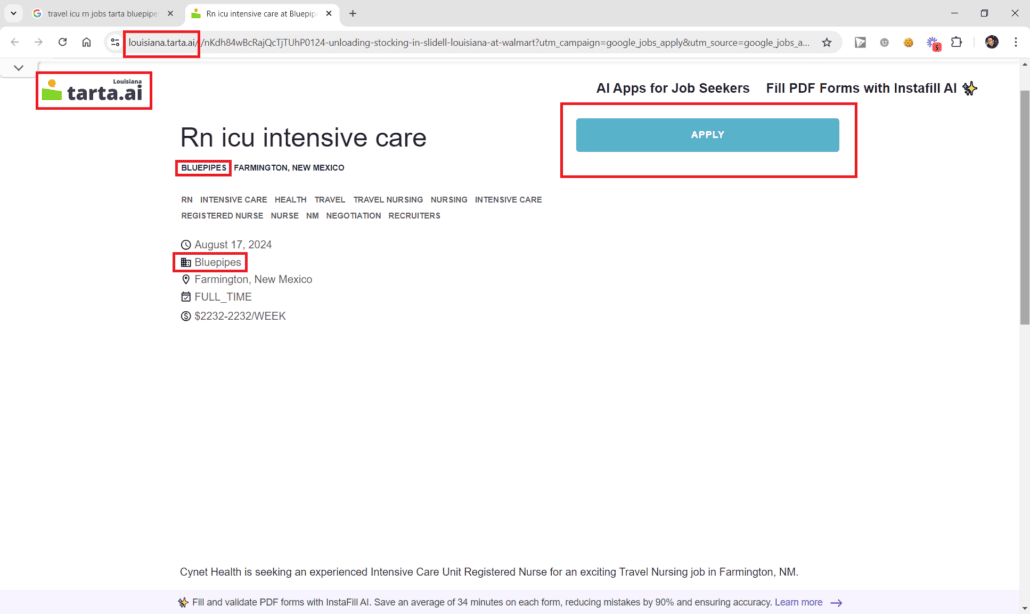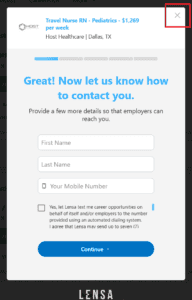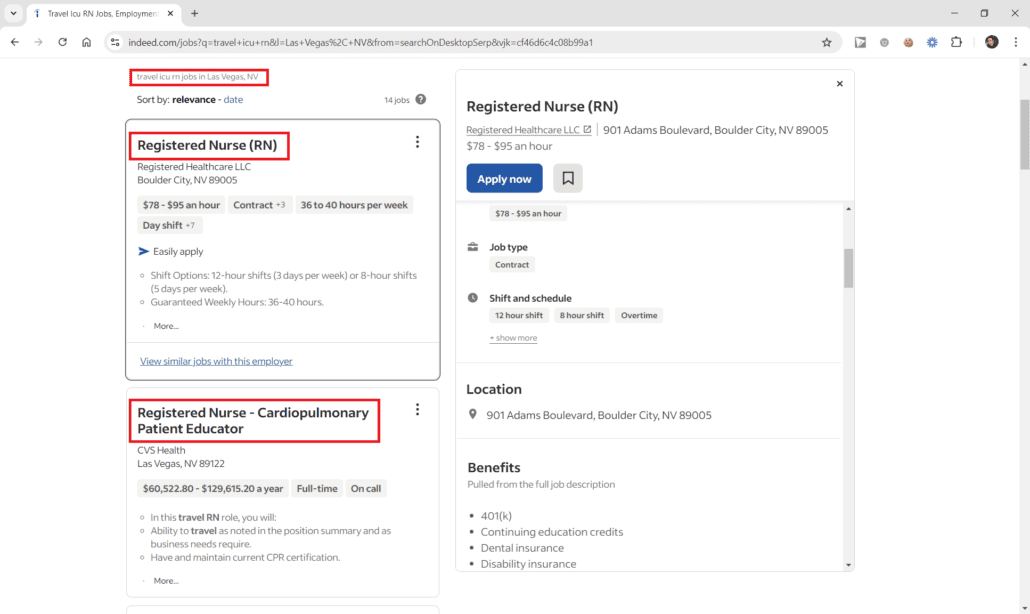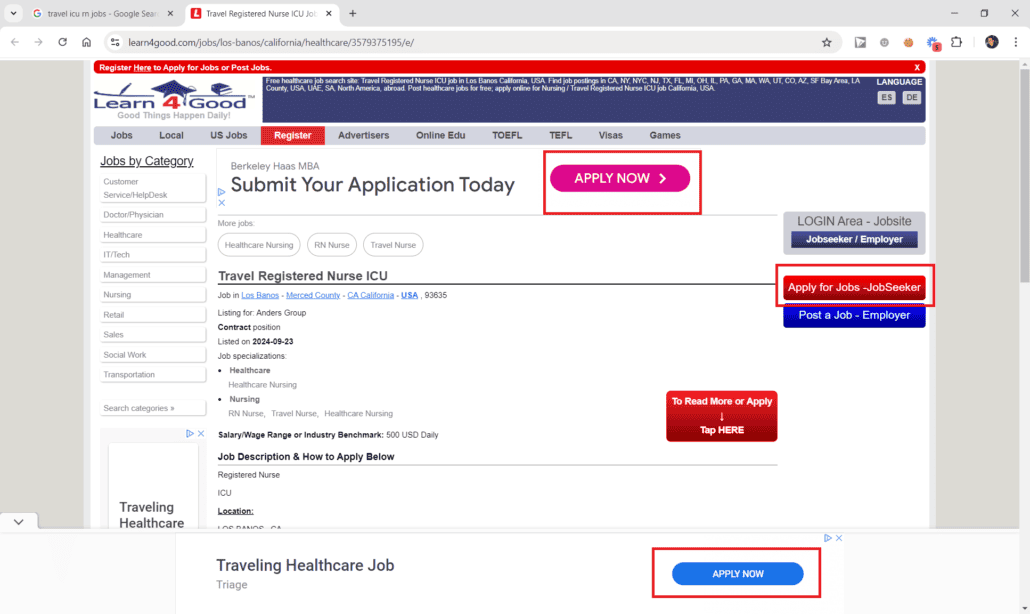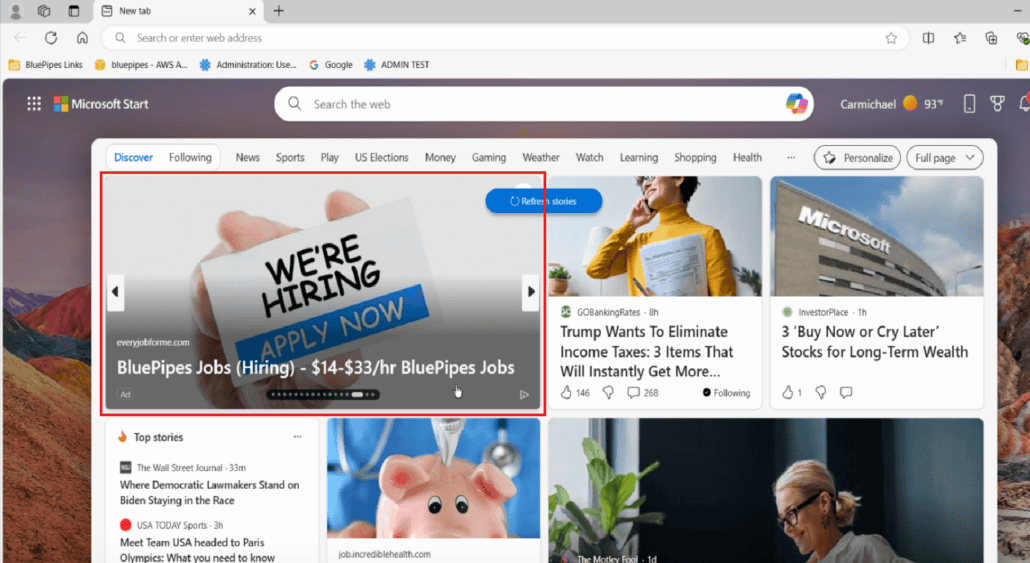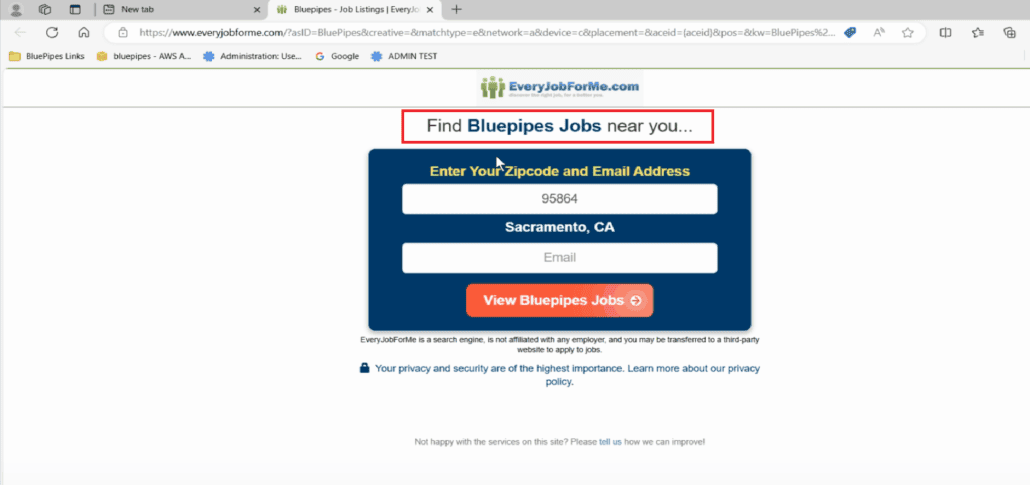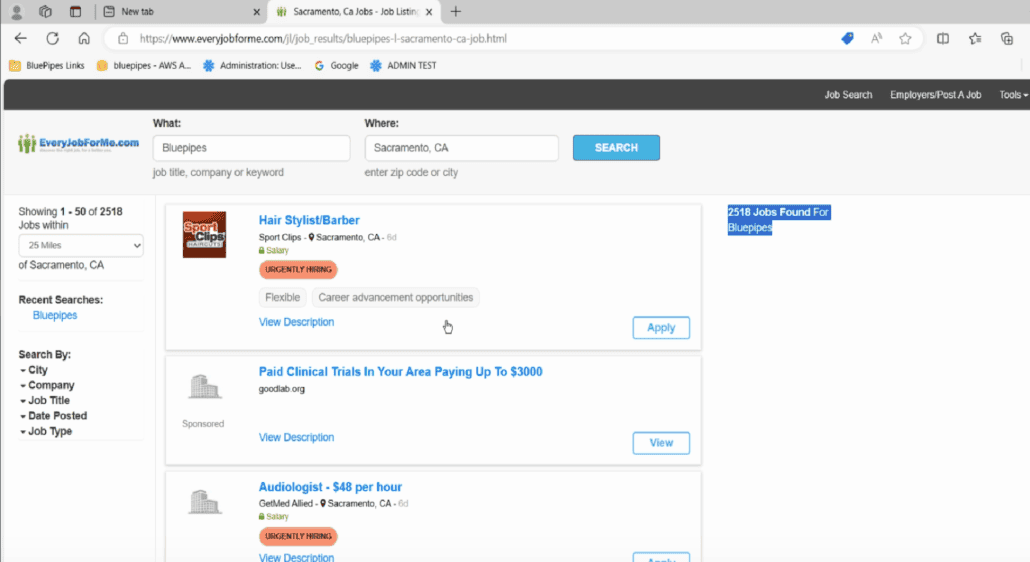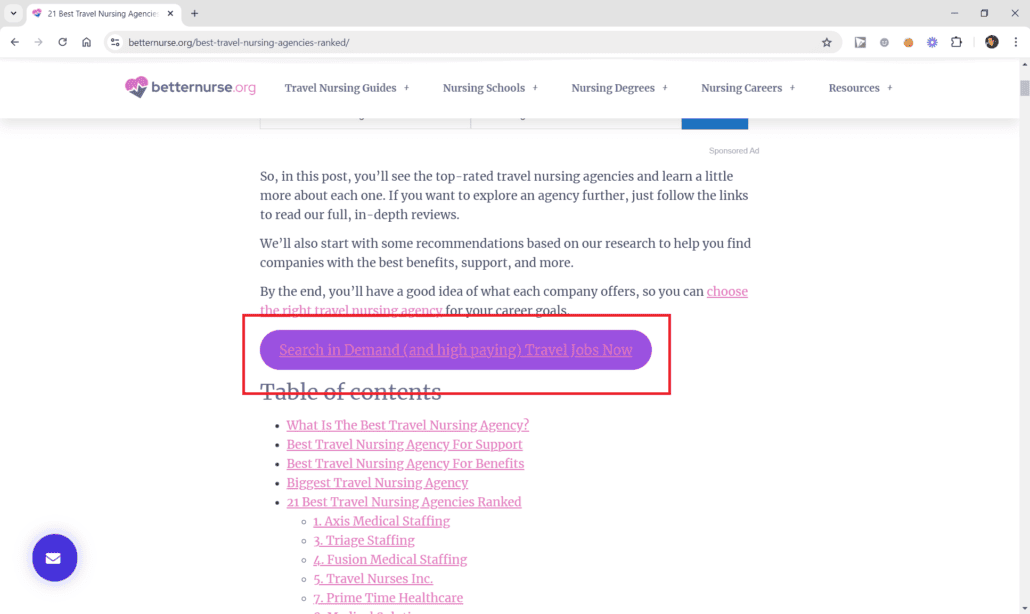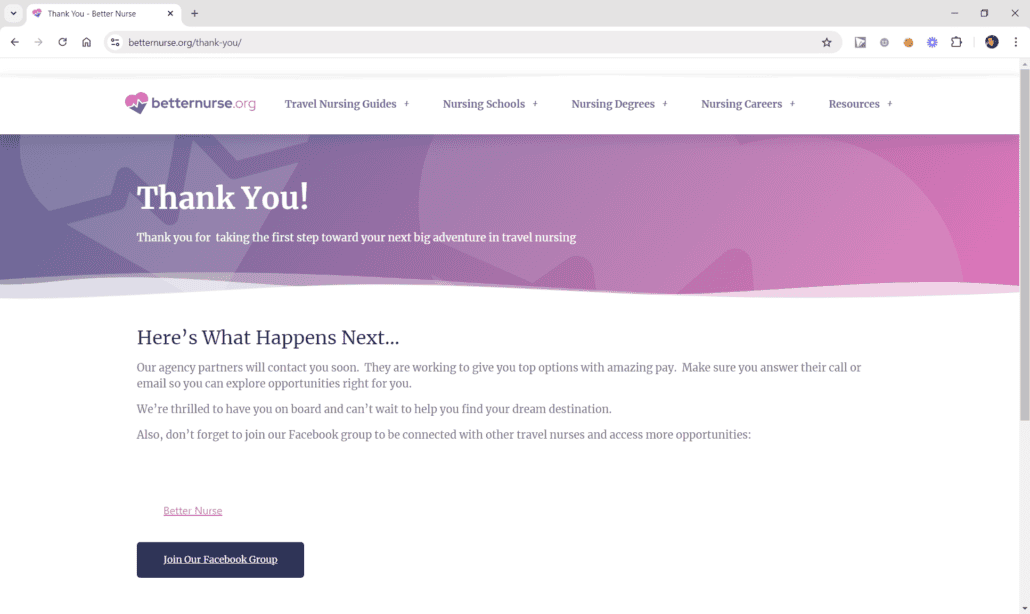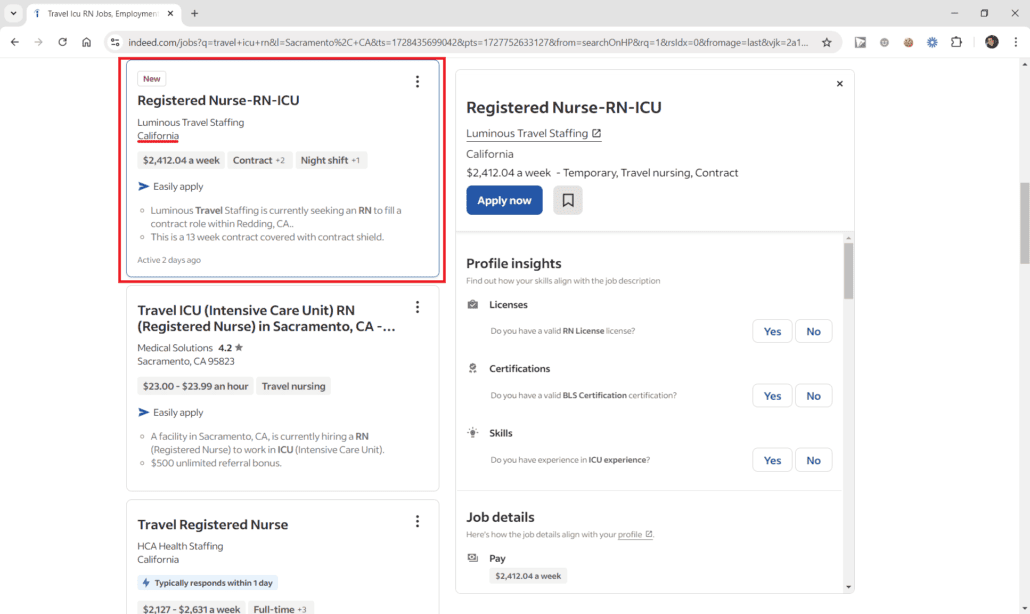12 Job Board Tips and Traps Travel Nurses Ought to Know About
I’ve learned a lot about job boards since launching the travel healthcare job board on BluePipes over 5 years ago. For example, I’ve learned many of the traps that other job boards use to get job seekers to unwittingly do things they wouldn’t otherwise do if they only knew what was really going on. So, in this article, I’ll share 12 job board tips and traps that travel nurses ought to know about.
Tip: “Pay Per Click” Job Board Advertising
Many travel nurses tell me that they are unaware when one job board diverts them to another job board to apply for a job. Here’s how it works.
A significant number of job boards, including the biggest job boards in the country, offer “Pay Per Click” job adverting. This means that employers and other job boards can advertise their jobs on the job board. When someone clicks to apply, the job board is supposed to send them to the website that the job came from. The receiving website pays the job board for the click.
How to Recognize Pay Per Click Job Advertising
There are a couple of ways you can tell when this is happening to you. The best way is to pay attention to the web address, or URL, when you select to do anything on a job board.
For example, if you start on jobboardA.com, click a button to Apply, and end up on jobboardB.com, then jobboardA.com diverted you to jobboardB.com. You’ll know this by looking in your web browser’s address bar.
Another way is to pay attention to the contents of the “Apply” buttons. For example, Indeed’s Apply button for applying to jobs through Indeed says “Apply Now”. It looks like this:
However, if they are diverting you to another website, then it will say Apply Now and also have an “external link icon”. It looks like this:
Knowing that you’re getting diverted to another website is important for several reasons. First, it’s good to know what website you apply to jobs through. For example, the recruiter might call you and say they received your application from jobboardB.com. If you don’t know that you actually applied on that job board, then you might neglect the call thinking that it’s a scam.
Additionally, it’s good to know what job boards actually have direct relationships with travel nursing agencies. Why waste your time searching for jobs on jobboardA.com if jobboardB.com is the place that actually has all the jobs and is the place that you’ll actually apply for the jobs?
Perhaps most importantly, this “pay per click” advertising model incentivizes all sorts of bad behavior that you need to watch out for. We’ll cover many of those below.
Tip: Click Arbitrage in the Job Board Industry
“Click arbitrage” is one of those bad behaviors in my opinion. Click arbitrage is when one job board buys a click from another job board and then sells the click to yet another job board for a higher price. Here is an example of how it works.
Minor Job Board 1 makes their jobs available to Major Job Board A for PPC advertising. Major Job Board A turns around and makes the same jobs available to Medium Job Board B. This can happen over and over such that a candidate ends up passing through 3, 4 or even 5 different websites before finally making it to the website where they can actually apply for the job.
So, why does this matter for travel nurses? If the system just passes the travel nurse through directly to the job board where they can actually apply to the job, then it doesn’t really matter.
However, it hardly ever works that way. Instead, each website typically stops the travel nurse in an effort to get the travel nurse to enter their contact information before passing them on to the next job board in line.
Trap: Preregistration in the Job Board Industry
That creates an absolutely horrifying experience for the travel nurse. This act of stopping the travel nurse in an effort to get them to enter their contact information before passing through to the website where they can actually apply to the job is called “Preregistration”. Here is how it works.
A travel nurse selects to apply to a job. The website opens a form that asks the travel nurse to enter their contact information. Now, in some cases, this form makes it clear that the website is asking for the information before passing you on to the website where you can actually apply to the job.
There are 2 problems with this. First, in most cases, job seekers do not recognize what’s happening. Second, these websites typically won’t let you pass through to apply for the job unless you give the website your contact information. In that case, you can just enter fake information if you’d like to keep your real information private.
In other cases, these websites flat out make it look like you’re actually applying to the job. They might even drag you through an entire process of gathering all kinds of career related information from you. All the while, you think you’re applying for the job but you’re not.
Trap: Tricking You Into Thinking You’re Applying When You’re Not
What I just described above is the tricky “preregistration” process that many job boards use. However, some job boards take this duplicitous behavior even further by simply making it look like you’re applying to jobs on their website when you are never really applying to the jobs. Let’s look at an example.
Below is an image of a job from BluePipes on another job board called Tarta.ai.
When I select the “Apply” button, the website proceeds to present me with screens to collect my personal information. When I submit the final form in their process, it just puts me back to the page I started on. If I select to Apply again, it will just walk me through the same process.
I know that I didn’t actually apply to this job because it’s a job from my job board. We have no affiliation with this other job board and we do not receive candidate information from them.
I want to be clear. If you apply to this job on this website, then the employer will never hear about it. This is among the shadiest of all job board behaviors.
Trap: Emailing you jobs that don’t match your qualifications
All this begs the question, “Why do they try so hard to get your information if you are not actually applying to the job?” They want to get your email address so they can monetize you over and over. How do they do this?
Well, when you sign up, you agree to receive emails from this job board. Of course, they send you emails with jobs. When you click to apply for the jobs in the emails, they will pass you through to another job board that’s paying them for clicks.
That doesn’t sound so bad. However, you may unknowingly agree to all sorts of other things, like sharing your contact information with that job board’s “partners”.
Another problem is that job boards that do this will also send you jobs that don’t match your qualifications in an effort to trick you into clicking. You’d be surprised by how well this tactic works. In the end, it’s a massive waste of your time and it adds tons of friction to the job market.
Trap: Redirecting When You Select Random Options
The tricks don’t stop there. Sometimes, the preregistration forms have a “skip” or “cancel” option. If you select it, then the website will divert you to the website where you can actually apply to the job.
For example, in the image below, if you select the “Close” icon I highlighted in red, then the website redirects you to another website where you can apply for the job.
That’s obviously a very annoying behavior. I mean, think about it. You’re requesting to cancel a process in which they’ve tricked you into thinking you’re applying to a job only to redirect you to the webpage where you could actually apply to the job.
Trap: Sending You to a Different Job After You Select Apply
What’s even more annoying is when one job board redirects you to a totally different job on another job board. I’ve seen this happen when I select “Apply” or when I select some random option like “skip” or “cancel”.
For example, you search a job board for “Travel ICU RN” in Dallas, Texas. The job board returns jobs matching your search. You select to Apply for one of them. The job board redirects you to a “Travel ER RN” job posting in Seattle, Washington on another job board.
Why would they do that? Again, they’re selling clicks and they probably expect to sell more clicks using this tactic. Additionally, they know that many people won’t recognize that they are applying for something different. Instead, they will just blindly enter their information.
Trap: Showing Search Results that Don’t match your search
Another tactic they use to get more clicks is to elevate jobs that don’t match your search. For example, you search a job board for “Travel ICU RN” in Las Vegas, Nevada. The job board returns search results where many of the jobs they list on top are something other than “Travel ICU RN”. Here is an example from Indeed.
You can see that Indeed shows me 2 entirely different jobs than what I am searching for. However, if you scroll down, then you start seeing “Travel ICU RN” jobs.
Why wouldn’t they show the jobs matching your search atop the list of search results? Because they’re trying to get you to click on jobs that are offering them the highest price per click.
Trap: Tricky Advertisements That Say “Apply”
Another trick job boards use to get you to click for them is to display banner advertisements that have “Apply” buttons in them. The image below is an example:
Note that none of the “Apply” buttons I highlighted will actually get you to apply to this job. Instead, they all redirect you to something entirely different. Again, they just want to trick you into clicking because they get paid when you click.
Trap: Banner Advertisements For Jobs that Don’t Exist
This next trick might be the worst of them all. Here is how it works. One day, I searched on Google for: Travel ICU RN jobs BluePipes. A different job board’s cookie, which was already on my browser, stored that search query and reported it back to the job board. Then, the job board used an advertising network to display the advertisement below to me:
Note that the advertisement says, “BluePipes Jobs (Hiring)”. When you select the ad, it diverts you here:
Note that they are asking me to enter my information in order to, “Find BluePipes Jobs” near me. This process had many steps including resume upload, phone number entry and more. Here is the page they landed me on after I provided all the information:
Note that the page indicates in several places that I am viewing BluePipes jobs. Yet none of these jobs come from BluePipes and the vast majority of them are not even remotely related to our services. Hair Stylist at Sports Clips?! LOL.
So essentially, this job board uses false advertising to get you to enter your contact information. Please note that you should never have to enter your contact information just to view jobs.
Trap: “Search for Jobs” but No Job Board
Another shady tactic some websites use is to advertise that they have jobs to show you when they really don’t. In this case, they’re trying to get you to enter your contact information so they can sell it.
For example, I highlighted a button that says “Search In Demand (and high paying) Travel Jobs Now” in the image below:
When you select that button, the website will take you through a process for you to enter your contact information and other details about your job search. When you’re done, the website lands you on this page:
Note that they have no jobs for you to search. They’re simply telling you that they are going to release your information to their “agency partners”.
Trap: Obfuscated Job Search Results
Finally, some job boards will obfuscate their search results. For example, I searched for Travel ICU RN jobs in Sacramento, CA on Indeed. Here is an image showing a portion of the results that Indeed returned:
Note the job posting that I highlighted in red. Specifically, it’s not for Sacramento. Instead, it’s for California. To clarify, this company has no jobs in Sacramento. Most people are not going to recognize that small visual difference and submit their application. So, you end up releasing your contact information to this company for nothing.
What Can Travel Nurses do to Avoid the Traps?
As you can see, job boards are laying traps all over the place. So, what can travel nurses do to avoid these traps?
First, you can avoid many of these traps by reading everything when you’re applying for jobs online. That said, some of these traps are simply unavoidable. For example, you’re probably not going to be able to recognize when a job board has a fake apply process. So, we’ll work on creating a list of the best job boards for travel nurses. Be sure to check back later for that!

